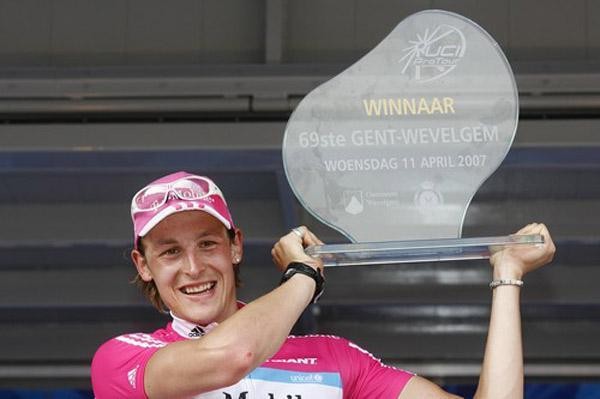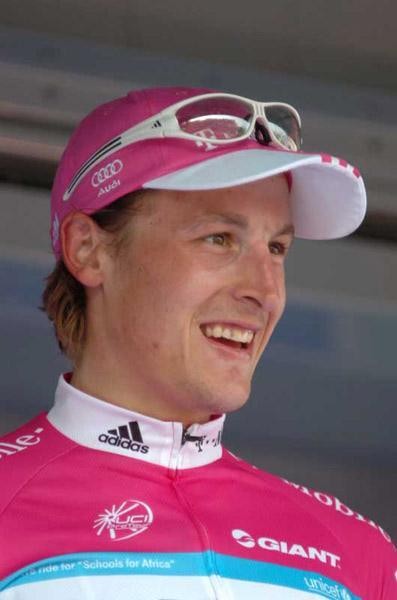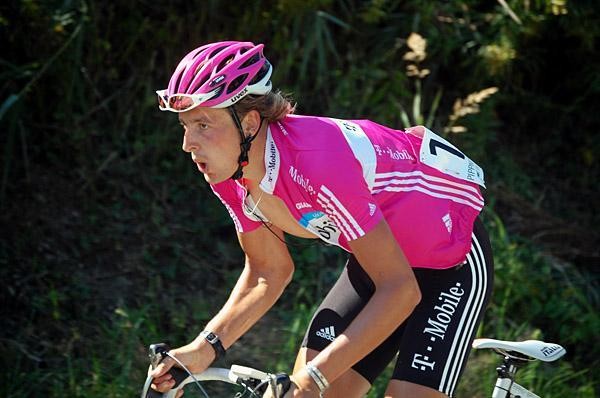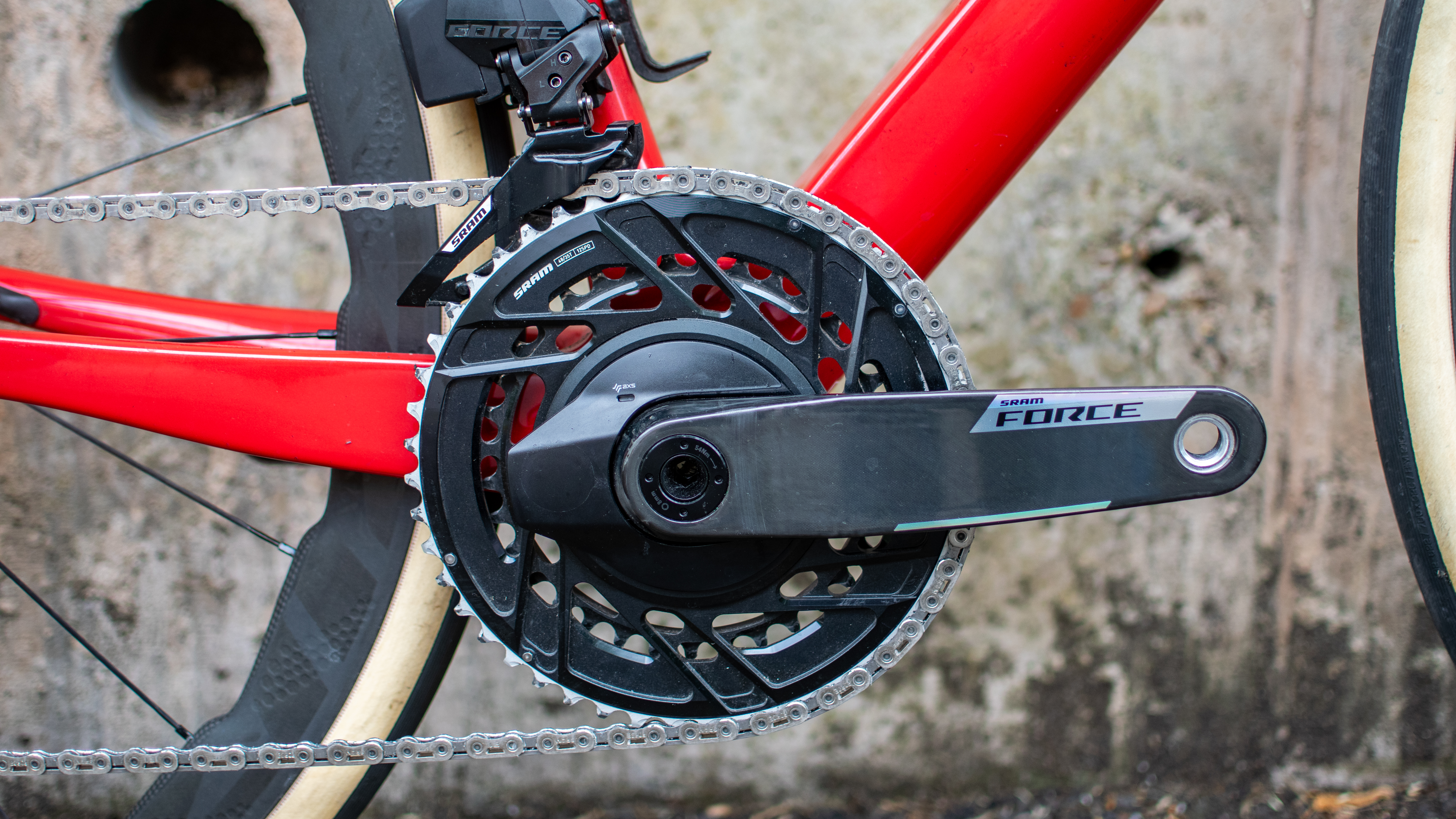Burghardt: "Only thing that counts is the team's success"
Marcus Burghardt was at the end of his two-year contract in the fall of 2006, recovering from knee...



An interview with Marcus Burghardt, November 6, 2007
Marcus Burghardt was at the end of his two-year contract in the fall of 2006, recovering from knee surgery and desperately hoping to be offered another chance in the form of a contract with the "new" T-Mobile Team under the leadership of incoming General Manager Bob Stapleton. Now, he is assured not only of a place on the team for next year but also a leadership role in the Spring Classics. Cyclingnews' Susan Westemeyer checked in with him about the changes that 2007 brought and found that while he enjoys his personal successes, he always thinks first on the team.
At the team's presentation on Mallorca last January, Burghardt was cautiously optimistic about the coming season. The 24 year-old German needn't have been cautious because the optimism turned out to be on target: his healed knee and matured self-confidence catapulted him onto the podium at two spring races.
It started with a third-place finish behind superstar sprinters Tom Boonen and Fabian Cancellara in the E3 Prijs Vlaanderen. He gained confidence not only from his performance in that race, but also from a compliment from Boonen, who said, "I have to admit the young German was unbelievably strong on the hills."
Only a few weeks later, he took his first professional win in "the biggest moment of my career," Gent-Wevelgem, with teammate Roger Hammond finishing second. With a kilometre to go, he attacked out of a six-man strong group and powered his way to the line first.
The win was the highlight of his season. "It was the greatest personal success in my career, and also a great team performance, which was crowned by Roger Hammond's second place."
Where did this success come from? What did he change, to make it happen? "I was good in the spring in previous years, too," he noted. "This year everything just came together: my preparations went perfectly, I had my freedom in the races, our tactics worked out well, and naturally at the deciding moment I had the legs and the mental strength."
The latest race content, interviews, features, reviews and expert buying guides, direct to your inbox!
The second highlight of the year for him was his first Tour de France. "I have never experienced anything like that. There were masses of people on the mountains, who enthusiastically cheered on even those who were the last – a group I always belonged to on the hard mountain stages. I will surely never forget that."
If those were his highlights, then the season's low point was equally obvious to him. "The doping cases." T-Mobile got hit twice by doping cases this season, with Patrik Sinkewitz's positive for testosterone which was made public during the Tour de France and Lorenzo Bernucci testing positive for an appetite suppressant during the Deutschland Tour.
Burghardt has a very clear view of doping. "This concerns the future of our beautiful sport. Every single rider must have the same attitude, and that must be against doping."
Keeping strong
The tall rider started the season off strong and ended it strong, winning two stages in the 3-Länder Tour just before the World Championships. "It was very important for me that I have good form again after the spring and the Tour, a form which I could use to successfully race with. The 3-Länder Tour is certainly not the biggest race, but it did loads for my motivation."
In the third stage, Burghardt was in a 12-man group which got away early, and attacked out of that group, staying active up until the end, when he sprinted away from three others to take the win. Two days later, he repeated his pattern of attacking out of escape groups, to take the race's queen stage.
After the 3-Länder Tour, he went to the World Championships for the second time in his three-year career. He served as a replacement his rookie year, so this was his first time to ride the event. He was more than happy to ride for Gerolsteiner's Stefan Schumacher, who he usually considers a competitor. "I supported him to the end in the national team. Stefan gave his all and really didn't disappoint us." (Read Burghardt had "best racing year of my life".)
He is satisfied with the role he played, showing himself to be a good team player. Even if he himself was unable to win, then "a bronze medal for the German team is surely a good result. At any rate it was a great honour for me, simply to be there."
2008
Looking to next year, Burghardt said he doesn't expect to make major changes in his training. "I was very successful this year, so we will stay with roughly the same thing. But of course we always try to continue to develop the training, and it depends on how the season goes."
What will that season include? "First, the Spring Classics, especially Paris-Roubaix, and of course Gent-Wevelgem as title defender. Then I would like to go to the Tour again, but I'll have to wait and see about that."
Paris-Roubaix – isn't there another rider on the 2008 team whose goal it is to win that race? Namely, newcomer George Hincapie? Burghardt affirmed this, but he doesn't anticipate any problems. "The more good riders we have the better that is for the team. It increases our tactical possibilities and it is an advantage for me personally. If we have six people on our team who can win a race, then the others would more surely let me go in an escape group more readily than if I were the only captain."
Even then he is reluctant to call himself a team leader or to rest on his laurels. "I am surely one of the riders who will have his chances in certain races. But we are a multi-talented team with many options, so that you have to keep proving yourself, because the only thing that counts is the team success."
Also read T-Mobile's up-and-coming Classics specialist.

